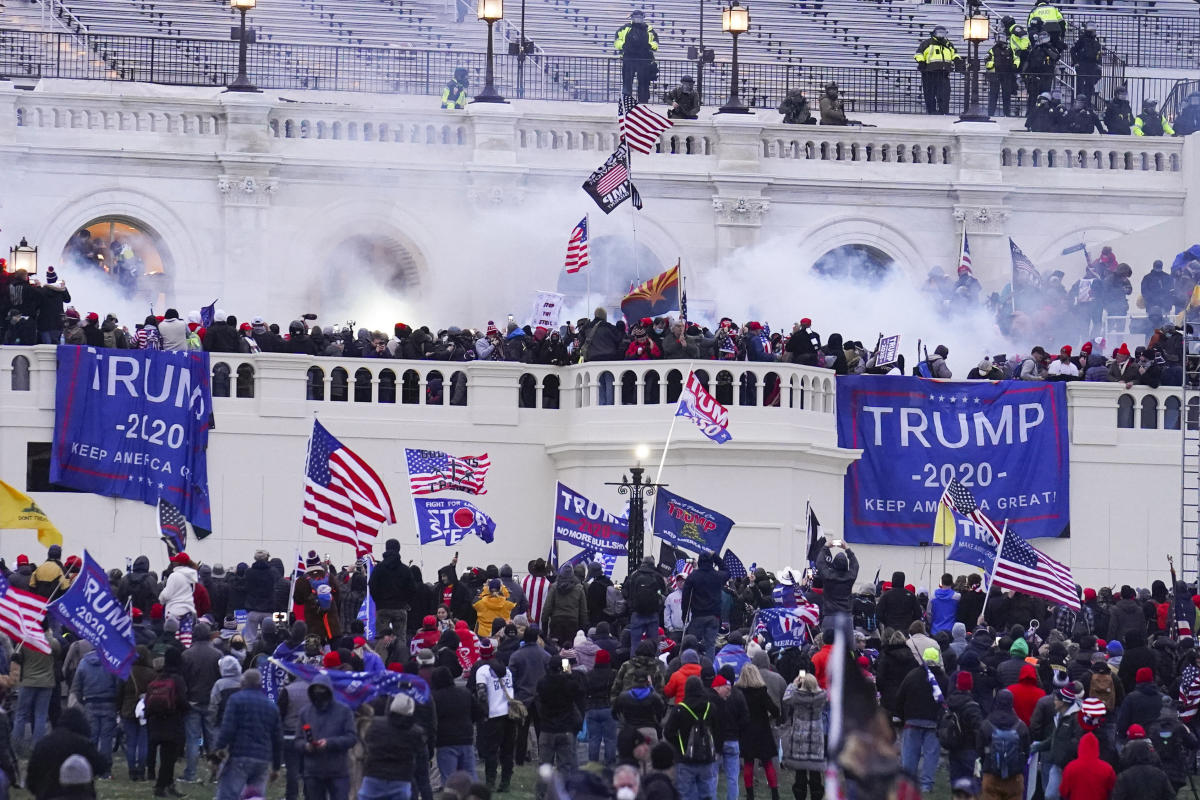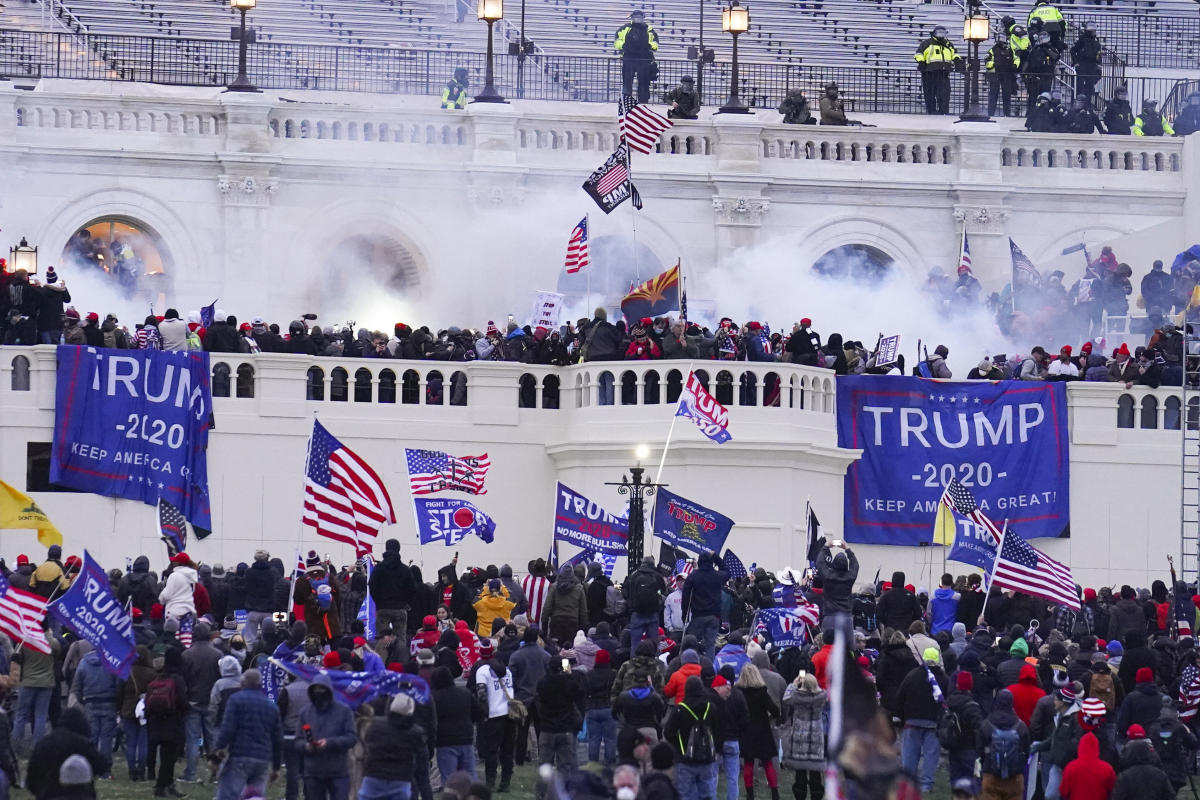
A federal judge on Wednesday shaved 15 months off of a Jan. 6 defendant’s sentence, a direct result of the Supreme Court’s recent ruling limiting the scope of an obstruction charge used to prosecute hundreds of rioters.
U.S. District Court Judge Christopher Cooper sentenced former police officer Thomas Robertson — who was sentenced two years ago to 87 months in prison after a jury convicted him for his role in the mob attack — to 72 months. Robertson’s resentencing came after prosecutors dropped the obstruction charge against him, one of the first examples of the impact of the high court’s ruling on Jan. 6 sentences.
Cooper said Wednesday the decision was not a reflection of any change in his thinking on the seriousness of Robertson’s crimes — he emphasized that what occurred on Jan. 6 is “not hyperbole – it was a real harm.” But he said he “struggled” to see how he could maintain the original sentence in light of the Supreme Court’s ruling.
Prosecutors had urged Cooper, however, to reimpose the 87-month sentence Cooper initially handed down, arguing that despite the Supreme Court’s decision to alter the legal landscape, the original sentence was still an accurate reflection of the gravity of Robertson’s offenses. Assistant U.S. Attorney Elizabeth Aloi said the “damage done to the country must not be treated as just another crime” and that the defendant was prepared to start a “rebellion and attack the nation’s democracy.”
Aloi assured the court that “nothing” Robertson did changed. “His offense targeted the peaceful transfer of power,” Aloi said. “There’s no reason to second guess that decision.”
Robertson traveled to Washington, D.C., with fellow officer Jacob Fracker, who later pleaded guilty to a conspiracy charge, on Jan. 6. Both officers with the Rocky Mount, Virginia, Police Department were off-duty.
Prior to attending the rally near the Washington Monument, the defendants left their police badges and firearms in the car. Robertson stormed the Capitol wearing a gas mask with a wooden stick in his hand that jurors said he had used as a weapon to confront police. A few months before Jan. 6, Robertson made a post on Facebook suggesting he spent his life “fighting a counter insurgency,” and that he was about to become a part of a “very effective one.”
Prosecutors argued that Robertson was a leader who organized and recruited two people, came dressed for the occasion and destroyed both his and Fracker’s phones to bury evidence. They said his offenses affected the investigation and are the reason they were unable to charge the third person.
Aloi cited Cooper’s concerns during Robertson’s sentencing in 2022, when the judge said Robertson might engage in another call of violence because of his lack of remorse. “He was not a bystander, he was a willing participant, he had an oath to uphold,” Aloi said, quoting Cooper’s 2022 sentencing remarks.
Robertson approached the bench wearing an orange uniform to give remarks before Cooper resentenced him.
“Jan. 6 was a bad day,” Robertson said. “My participation allowed bad things to happen that should not have.” Robertson then recalled Cooper’s observation that he would likely revert back to the same activity.
“You didn’t think I was properly dissuaded from doing this again,” Robertson said to the judge. “I promise you, you will not have the same concern.”
Cooper replied: “Your conduct halted the certification of a government function. … I would be hard-pressed to increase back to 87 if this were a clean slate.”
EMEA Tribune is not involved in this news article, it is taken from our partners and or from the News Agencies. Copyright and Credit go to the News Agencies, email news@emeatribune.com Follow our WhatsApp verified Channel





